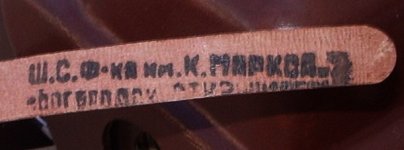Not quite. Kiev is called Київ in Ukrainian; if you want to spell the Ukrainian pronounciation with the Russian letters, one would spell it Кыив, the accent in Ukrainian is on the second syllable, while in Russian it's on the first.
Russian "o" or "e" quite often corresponds to "i" in Ukrainian, as in Lvov/Lviv, Khar'kov/Khar'kiv etc. The village where my wife's family comes from is called Aleksandrovka in Russian and Oleksandrivka in Ukrainian. You can still see the connection in the declension; for example the city of Lvov in western Ukraine is called "Львів" in Ukrainian, with an "i", but for example the form in the sixth case e.g. "in Lvov" is "у Львові" in Ukrainian, where the "o" appears again. In Russian the same form would be "во Львове", and in the final letters of the Ukrainian and Russian forms you can again see the e-i connection between the two languages.
Philipp

